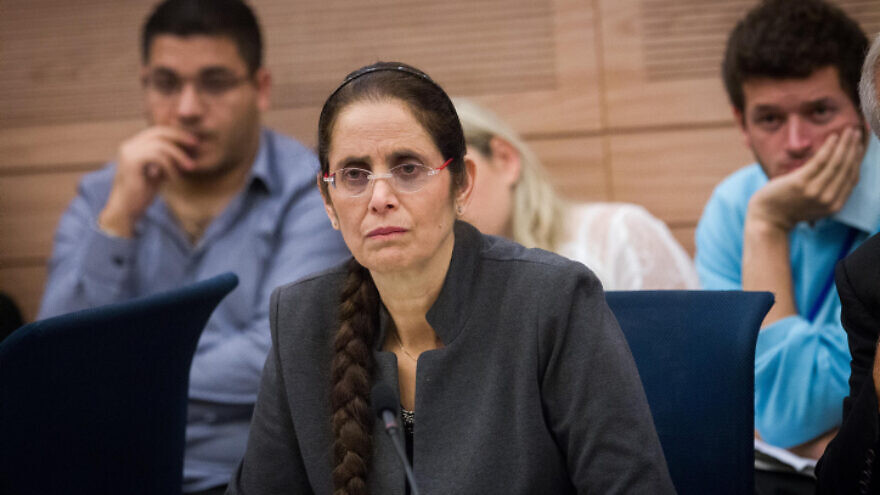Israel Defense Forces Lt. Col. (ret.) Dr. Anat Berko is a criminologist and a world-renowned expert on terrorism whose research focuses on suicide bombers and their handlers. Over the course of 20 years, she met with Palestinian terrorists, including senior Hamas figures such as the group’s founder, Sheikh Ahmed Yassin. Between 2015 and 2019, she served as a member of Knesset for the Likud Party.
Q: During your research for your doctoral thesis, you interviewed security prisoners and compared them to criminal prisoners with respect to matters related to moral judgment. You spoke with them while they weren’t handcuffed. Isn’t that intimidating?
A: There were definitely situations when I felt threatened. Once I was sitting in one of the wings in the highest-security prison, and I interviewed someone who dispatched suicide bombers for Hamas. He was 2 meters [6.5 feet] tall, and behind me was a crowbar. He asked me: ‘What would you do if I hit you over the head with that crowbar? Like the Jews did to us, during the Intifada?’”
Q: How did you respond?
It neutralized his opposition and he cooperated with the interview, far beyond what I asked. It was important to me to sit with prisoners when they didn’t feel like they were under investigation, so I took the chance of sitting with terrorists, some of them serving numerous life sentences, without them being handcuffed.
The personal relationships that I built with them led to deep insights from a research and operational perspective.
Q: Did you encounter other unusual situations?
A: I had some unbelievable encounters. For example, the Hamas deputy prime minister asked me if I had been in the army, and I replied: “Of course, who doesn’t go to the army in Israel?” I didn’t take an apologetic stance, even when a terrorist was harsh toward me. When terrorists would ask me about my children, I answered them. A sort of give-and-take was required in order to make a genuine conversation possible.
Q: Your children even wrote letters to security prisoners.
A: It’s true. My children’s letters appear in my first book, “The Path to Paradise.” My youngest daughter, Keshet, who back then was nine, chose to ask the terrorists rational questions, for example: “Would you have carried out a terrorist attack in a kindergarten?” My eldest daughter, Tzlil, who was 15, chose to appeal to their hearts in a letter that even caused a female terrorist to burst into uncontrollable tears. My son, Yehiam, refused to write to them. One prisoner asked me why my son didn’t write, and I told her exactly what he told me—”I don’t want to write to murderers.” He was only 13 at the time.
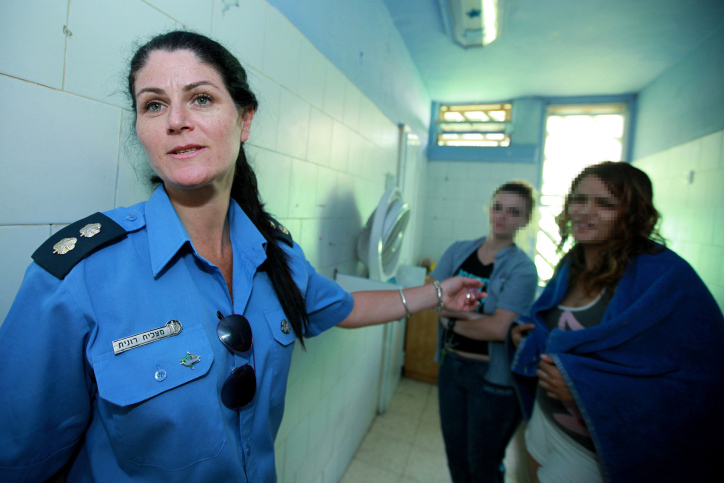
Q: What drives a young, educated woman in her 20s to want to spend most of her time between the prison walls and later to study security prisoners?
A: My bachelor’s degree was in criminology, psychology and sociology, and I reached the conclusion that the field of criminology involves other areas, and also offers insights into people in extreme cases of human behavior. When I finished my master’s degree, while I was in the army, immediately after a term as a commander in the officer training course, I asked to oversee a prison, and I was promoted to commander of Prison 400.
I understood a prison to be a living human laboratory. I think that was the source of my interest. For my thesis, I carried out research among criminal prisoners at Neve Tirtza Women’s Prison, and later, while I was looking for an interesting subject for my doctorate, Reuven [Middle Eastern scholar Dr. Reuven Berko], my spouse, suggested that I study Hamas and Islamic Jihad prisoners. Those were people that, on the face of it, were impossible to study.
Q: And you decided to begin with then-Hamas leader Sheikh Ahmed Yassin. Sounds challenging.
A: I knew that if I interviewed him, and he spoke with me, that all the other security prisoners would agree to speak with me. And the prisoners didn’t stop talking; they looked forward to their meetings with me. Ahmed Yassin too—I had to stop him after five hours because I didn’t want him to miss his lunch.
Since the sheikh was very religious, I interviewed him dressed like an ultra-Orthodox woman. To hold an interview, I knew that he had to feel comfortable. I come from an Iraqi family, I understand Arab culture from the inside, and I was glad to see that, for the sake of my research, I was able to form a meaningful connection with Hamas leaders, murderers and with those who dispatched suicide bombers.
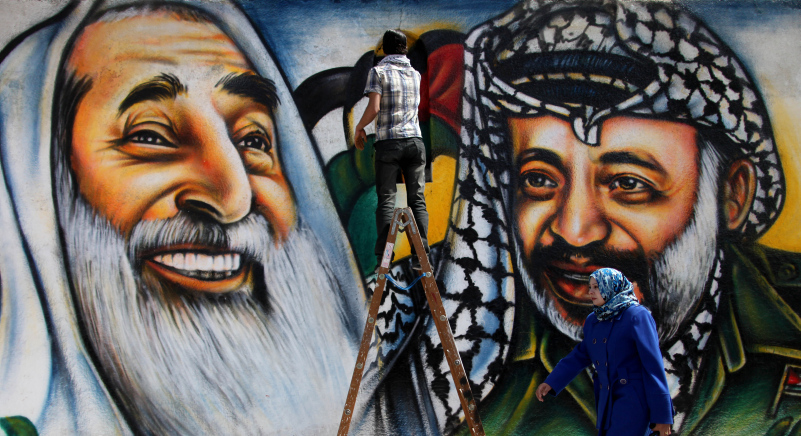
Q: What do you remember about Ahmed Yassin?
A: He came with all the [cachet] that he had from the outside, so he had a special status in jail. At the same time, as he had physical disabilities, he always had another prisoner alongside him who took care of him. Sometimes that same prisoner would tell Yassin to be quiet, that there were things that he shouldn’t talk about. Another surprising thing was that he didn’t quote the Koran accurately.
Q: From a broader perspective, what is the recurring pattern in the inner world of security prisoners?
A: They are very sensitive people who are rooted in a collective society, while we conduct ourselves as individuals. The issue of masculinity is very important to them, and they don’t see incarceration as a blow to their status, as criminal prisoners do, but as something that reinforces their status in the eyes of society—something for which they receive recognition as future leaders. Therefore, I think that security bodies need to lend higher importance to what happens inside the prisons. With the help of in-depth research, such as I conducted for many years, it’s possible to better understand who we are dealing with, and this is relevant in areas like psychological warfare, for example.
Q: Who are we dealing with?
A: In their society, they are seen as normative people. Even when it reaches the “Jews,” and they lose all restraint and inhibition, they are essentially conformists, since acts of terrorism are not seen as something wrong there [in Palestinian society].
Even inside the prison walls, they don’t feel isolated, unlike criminal prisoners. Security prisoners feel safe in prison since they are jailed in certain affiliation groups, according to the terrorist organization to which they belong, so that they have social support from the inside, and public support from the outside.
It’s also possible to understand them from their life stories. For example, a prisoner serving 46 life sentences told me that when he was 15, he worked at a supermarket in Herzliya. According to him, “the Jews” treated him well, but he felt that it wasn’t right that he was working on land that was his but wasn’t under his control. He said to me: “It harms my spirituality.”
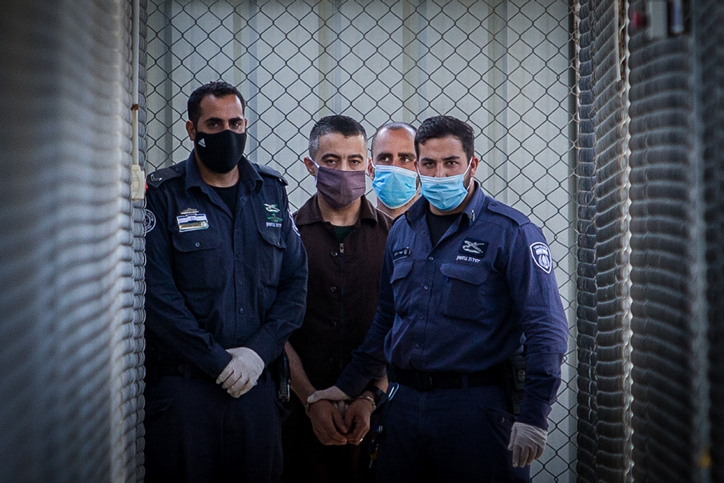
Another clear element is connected to the fact that security prisoners try to distinguish themselves from the criminals. It’s true that some of them started out as car thieves, but they made a sort of switch to terrorism and over time made a career out of it. It begins with throwing stones and Molotov cocktails. Afterward, they become aides and in the end, they deploy terrorist squads for suicide bombings.
Another difference is that, unlike criminal prisoners, they don’t think they will serve out their entire sentence—they’re certain that they will be released as part of a deal. For example, at the end of our conversation, Sheikh Yassin invited me to Gaza if I had any more questions. He was convinced that he would be freed—and after a few months there was the failed assassination attempt on [then-Hamas politburo chief] Khaled Mashal in Jordan, and he was indeed freed.
Q: Turning to current events, what drives prisoners to escape from prison?
A: Sometimes it can be a situation where they don’t see any chance of a deal and their motivation to escape rises accordingly. But I don’t think that was the case in the recent escape [of six terrorists from Gilboa prison] because a deal does occasionally come up as a possibility. I think that, beyond the desire for freedom, they aimed to receive social accolades and recognition as heroes of the struggle.
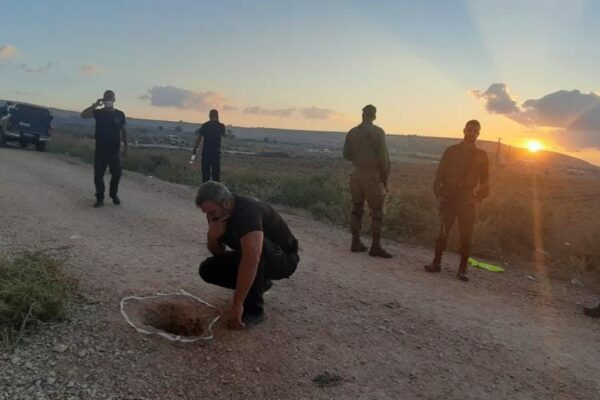
Q: To what extent does the behavior of prisoners predict a possible escape, and how much did the organizational structure of the Israeli Prison Service encourage an escape like this?
A: It’s enough that a prisoner who isn’t affiliated with the Islamic Jihad asks to transfer into their cell and the request was granted. That’s a very bad sign.
Q: How does that happen?
A: I really don’t know. There’s intelligence that three prisoners want to escape and they put them together? It’s absurd. The way that we jail the prisoners leads to how they band together. We allow people from different areas to facilitate communication between them, to organize terrorist attacks. Dividing them up according to their organizations allows them to cultivate a new generation of leaders. The recent case was a chance to clean out the stables, to shake up the system. I hope that it won’t be limited to blaming the guards. The [prison] commanders share the responsibility.
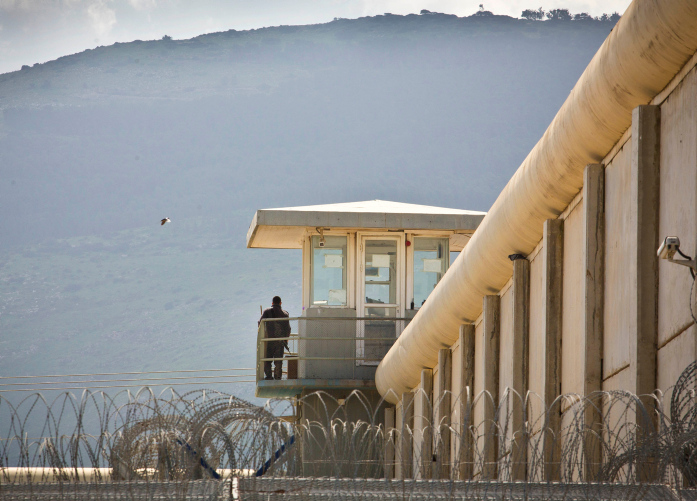
Q: The organizational conduct of the different terrorist groups allows them, in many cases, a certain amount of control of the prison. Did you identify this trend during your research?
A: I didn’t carry out research in Gilboa Prison and I also didn’t identify a level of total control, but I did see that security prisoners have autonomy in prisons. They sit openly in the wing, cook and eat together, and their canteen looks a lot better than any military canteen for combat soldiers in a closed unit. When that’s the situation, we have a problem.
By the way, they also receive medical care that isn’t included in the [Israeli] healthcare basket. It’s crazy. Why shouldn’t the Palestinian Authority pay for treatments like that? There are security prisoners with serious illnesses who get imprisoned only so they can receive certain medications, or others who get imprisoned so they can study quietly for their matriculation exams. The life of Hamas leader in Gaza Yahya Sinwar, for example, was saved thanks to brain surgery he had when he was a prisoner [in Israel]. If he had been in Gaza, he wouldn’t be alive today. Criminal prisoners in jail often have a feeling of time wasted. Security prisoners, on the other hand, feel that they are growing and developing all the time.”
Q: Are the prison guards afraid of the inmates?
A: It’s not necessarily fear, but there’s an attempt to placate them. It’s also important for the prison wardens to maintain calm—to avoid irregular events, hunger strikes or various pressures—because when there’s a diplomatic process and they [terrorist groups] want to create pressure, they do it using the prisons.
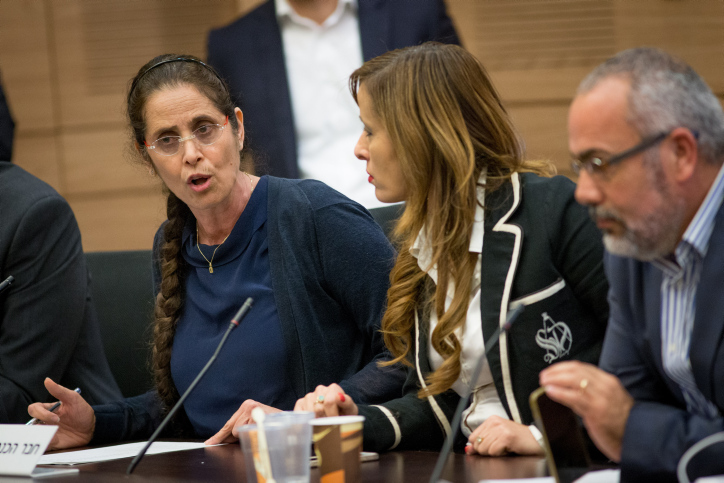
Q: The last bill that you passed as an MK was a law canceling committees that reduced sentences. You passed this because of recidivism—the tendency of paroled criminals to reoffend. On the other hand, Maj. Gen. Moshe Ohayon, a prison commander in the south, who also has a doctorate, says that security prisoners need to be provided with educational and rehabilitation programs. Is there a possibility of rehabilitating them?
A: They don’t express remorse; in my opinion, there’s no potential of rehabilitating them because, from their perspective, they didn’t do anything wrong or forbidden. Their society empowers them for what they did. Moreover, there’s also difficulty on our side. Beyond the law that you mentioned, I passed a law to prevent the election of convicted terrorists to the Knesset. There wasn’t a law like that before. The State Attorney’s Office told me that it’s a basic right to be elected to the Knesset and demanded that I place a time limit on the ban. I requested 25 years, and in the end, I had to make do with 14. Does it seem reasonable that convicted terrorists will sit in the Knesset, even after 14 years?
Q: So you’re pessimistic with regard to rehabilitation?
A: I am pessimistic—but sometimes there’s another perspective. For example, men don’t wish for themselves and their families to be terrorists. A young man who I interviewed from Islamic Jihad, an intelligent youth and a good student, told me, “My father, who was one of the Islamic Jihad leaders, told me that my role in life was to get good grades. He gave me money for every good grade.” He said that the moment he started carrying out security offenses his father beat him up. So even the most senior leader doesn’t want his child to spend his life in prison. Life as a wanted man isn’t comfortable, and people prefer to be outside of prison.
Q: Prison is a difficult place and that’s clearly true for prison personnel as well, and for you as a researcher. After hours of interviewing terrorists, you returned home. What did you feel?
A: When I came home from the prison I had a strong need to disconnect, to get rid of the prison stench before hugging my children. Anything you touch there is difficult. Home life was very influenced by it.
Q: During your conversations with security prisoners, you formed, as you noted, meaningful connections. Weren’t you worried that you might develop empathy or sympathy with the prisoners?
A: I once wrote an article on this subject, titled “Talking with Terrorists,” together with the late professor Jerrold Post. Listen: Empathy is a tool, it allows us to [share] exceptional human moments, but it doesn’t mean we identify with them. It reminds me of when a female [would-be] suicide bomber started crying during our conversation, and hugged me. She said to me, “I really only want my mother.” She was a terrorist who was captured on her way to carry out a suicide attack.
Q: What goes through your head during those moments?
A: That she’s the same height as my daughter, who at the time was 15, and she could have got onto the bus at the same time my daughter was coming back from school. So sometimes there is indeed empathy—but there’s no sympathy. I read the indictments, I know what they did. My approach was very professional. I didn’t lose my identity when I worked in the prisons. On the contrary, beyond intellectual curiosity, I viewed my research as a mission. We have to have an in-depth understanding of the people confronting us.
This article first appeared in Israel Hayom.


























